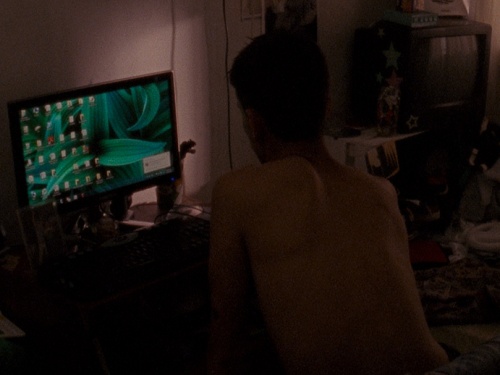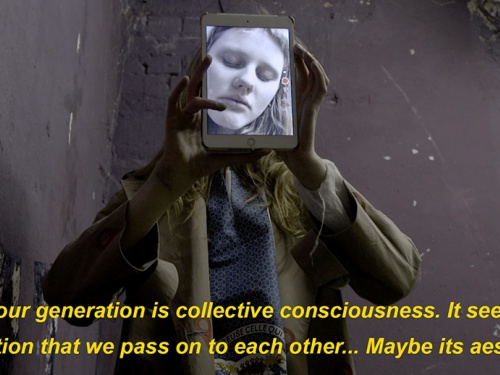Gerry Fox on Mother's Milk
Our cinema programmer Jo Blair recently caught up with Gerry Fox, director and co-screenwriter of new film Mother's Milk, which we're currently showing in our cinema. We asked him few quick questions about his experience of making the film...
Jo Blair: How did you come to Mother's Milk as a film project?
Gerry Fox: I came to the film because I was sitting on the jury of The South Bank Show Awards in 2006 and the book Mother's Milk was nominated in the literature category. I thought it was beautifully written and enjoyed the whole milieu and story and pushed hard for it in the judging deliberations. It went on to win the Award. A few years later someone introduced me to Edward [St Aubyn - the author] after a David Byrne concert and we chatted about the possibility of making a dramatised documentary about all the Patrick Melrose novels, in a similar way to a film about John Updike's Rabbit novels which I had worked on at The South Bank Show. After the South Bank Show came to an end on ITV I suggested we turn our idea into a full length film on Mother's Milk and do it together collaboratively. That's how it all came about
JB: Where did you start with developing the screenplay from the novel?
GF: Edward and first got the UK Film Council involved and then spent hours together at home working through the book and choosing which bits we thought would work in a film and which bits to leave out. Inevitably we had to think about re-structuring it as a film which wasn't easy as it was a particularly internal novel without a lot of plot or action. We also decided to squash four summers into one long hot summer in Provence mainly because it would be so hard to age two children over four years...and also for the obvious dramatic reasons.We also got rid of a whole trip the family make to America in the last quarter of the novel and decided to keep the film dramatically focused around the house the family are going to lose in Provence, which would hopefully make the story much stronger as a movie. This also meant we had to re-imagine some of the characters a little, but all in all it was a very constructive process which actually went on right through the filming period as neither Edward nor I were experienced screenwriters! It was good to have him around, despite a lot of people's misgivings, as he could get the dialogue right almost immediately since he knew them so well.The voice-over narration from the novel was my idea and came much later as I felt it would give greater depth to the story and characters. I hope I was right! We were even thinking of putting out two versions on the DVD so people could choose the on ethey fancied more...!
JB: You're known for documentaries on artists from Gerhard Richter, Gilbert and George, etc. How did you find the move to making a feature film?
GF: Yes that is true. I am an arts documentary maker by profession and although I wanted to make the film quite like a documentary told from different perspectives it all still required some getting used to on the set as actors like lots of takes and close-ups and coaxing, and also hated working with a real live baby (played by my recently newborn daughter) as it put them off. I felt the baby needed to be real and there as much as possible to make it authentic and believable which didn't always go down very well! But I have done TV drama before so I adapted to their needs as best I could. I also worked with my usual documentary cameraman, sound man and editor so we were able to battle through it all without too many horrors or errors especially as the budget was extremely tight! When we got a great documentary moment like a herd of sheep invading the field by the house, for example, we were able respond like lightning and take full advantage of it. Years of making arts docs has made me very collaborative as a director so that worked well especially in terms of continually re-thinking the script with Edward on set, not dissimilar in process to collaborating with an artist, and with my editor later. I enjoyed making the feature film though I still love arts documentaries which do offer more freedom to play around with the material especially in the edit. I am now back to working on a feature length documentary about Bill Viola who is creating a permanent video installation about the life of Mary for St. Paul's Cathedral in London.
JB: At what point did Jack Davenport come on board?
GF: Jack Davenport came onboard because he was a huge fan of Edward's novels and had, in fact, optioned and worked for many years on a screenplay of the earlier Edward St. Aubyn Melrose novels known collectively as Some Hope. He was hoping to play Patrick as a young man as a drug addict in New York and as a recovering addict at an English house party. So he jumped at the chance to play Patrick as a middle aged man a decade later. This had obvious advantages as he knew the character intimately but might also have proved tricky as he had a particular view of the character based on the earlier novels which was perhaps a little different to the older Patrick of Mother's Milk. But he was great and really made the character his own as the shooting progressed. Having him on the film also helped secure other great names like Adrian Dunbar and Margaret Tyzack and sadly this ended up being her last film. She does give a wonderful performance as a dying mother determined to leave her house to an Irish charlatan.
Mother's Milk is showing at the ICA until 28 November.




